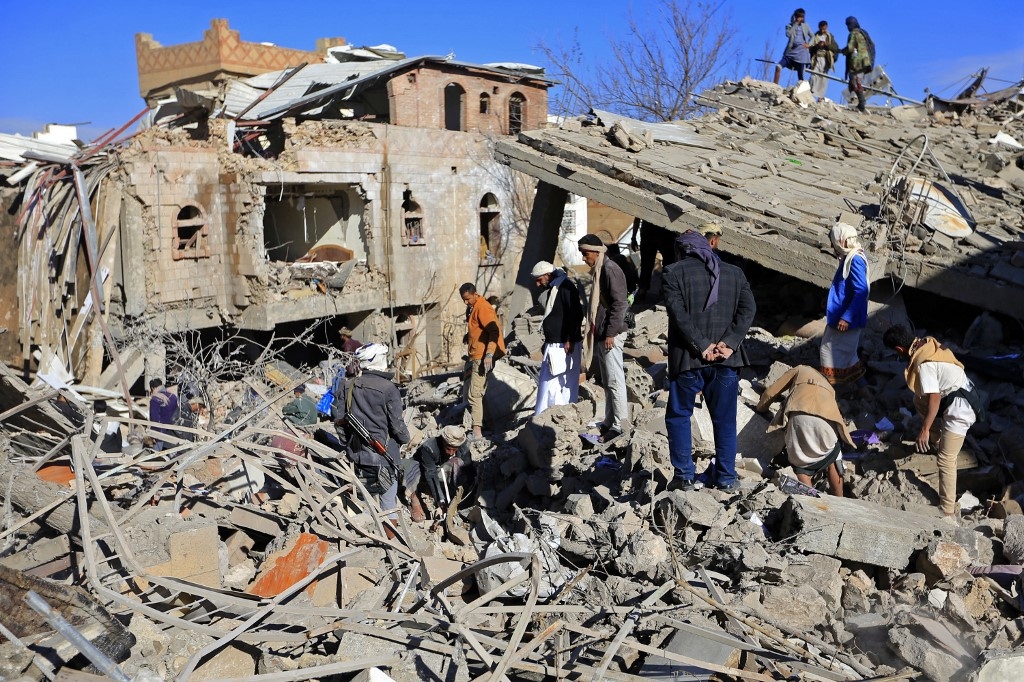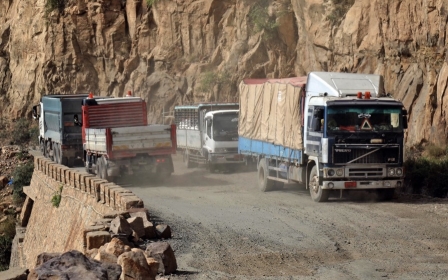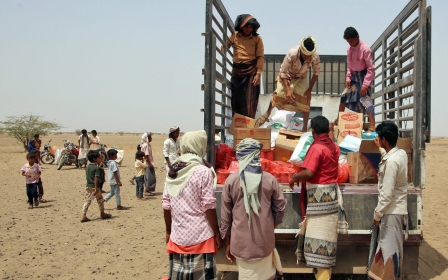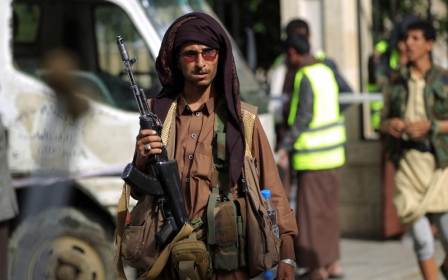Yemen's warring parties block victim compensation claims despite promises

Yemen's warring parties have not followed through on public commitments and international obligations to provide reparations to civilian victims of the country's conflict, a new report said.
The report, Returned to Zero: The Case for Reparations to Civilians in Yemen, was released by Mwatana for Human Rights and the Allard K Lowenstein International Human Rights Clinic at Yale Law School.
In dozens of interviews conducted between May 2020 and January 2022, the Yemen-based organisation Mwatana found that victims were failed by the Saudi-led coalition, Yemen's internationally recognised government, and the Houthi movement, all of which have made commitments to provide compensation.
'Why these air strikes? Why these people? Why these numbers? There was no transparency'
- Kristine Beckie, Human rights lawyer
The Saudi-led coalition, in which the UAE is a major partner, only set up a commission to compensate victims of air strikes in 2018, as international pressure for accountability was mounting.
A year after that, Mwatana was finally able to verify that the coalition's committee on reparations had agreed to make condolence payments to the civilian victims of six air strikes.
New MEE newsletter: Jerusalem Dispatch
Sign up to get the latest insights and analysis on Israel-Palestine, alongside Turkey Unpacked and other MEE newsletters
Many Saudi-led air strikes have appeared to be “unlawful”, said Mwatana, which described giving compensation to six raids as “a shockingly tiny fraction”.
According to UN figures, the Saudi-led coalition conducted an average of 600 air strikes per month in 2021. Coalition air strikes alone are estimated to have left thousands dead.
Compensation claims over coalition forces attacks, therefore, could run into the millions of dollars.
‘No transparency’
There was little indication as to why the coalition chose to compensate the victims of those six specific attacks.
“Why these air strikes? Why these people? Why these numbers? There was no transparency,” Kristine Beckie, a contributor to the report and human rights lawyer, told Middle East Eye.
Mwatana’s investigation of the process found that the “payment process - which followed investigations that were not independent, impartial, or credible - was non-transparent, ineffective, and far from thorough”.
In relation to those six air strikes, Mwatana found that the Saudi-led coalition and the Yemeni government had paid almost $700,000, said Beckie.
“When Mwatana went and interviewed people impacted by these strikes, some had received payments, some people had received only partial payments, and others received no payments at all,” she added.
As the eight-year war in Yemen continues, Beckie said that “a comprehensive mapping of civilian harm in Yemen, as well as consultations with victims", is essential. Otherwise, she said, "without those two things, you can’t come up with a credible reparations plan”.
Even in the few cases where the Saudi-led coalition had agreed to make payments, it came without an apology or acknowledgment of fault.
“The coalition and internationally recognised government of Yemen asked some of those who received payments to sign a receipt describing the payments as 'voluntary assistance' provided to those harmed by coalition 'mistakes'," the report concluded.
“The unfortunate thing,” said Beckie, is that any hopes for a credible investigation faded when the “UN Human Rights Council got rid of the international investigation into Yemen abuses this autumn, after lobbying by the warring parties.”
‘Zero payments’
The Houthis, who the Saudi-led coalition is fighting in support of the Yemeni government, have also created redress-related bodies, at least on paper.
When asked how much the group has paid to civilian victims, Beckie said: “The best number for the Houthis is zero.”
“We found no payments or monetary assistance provided by the Houthis to civilian victims of their abuses,” she told MEE.
In countless interviews with lawyers and victims seeking redress from Houthi authorities, Mwatana found that the group was just as likely to shirk accountability as the coalition.
It discovered, amongst other things, a fear by petitioners that they could face reprisals for bringing up complaints.
“Although the committee is called the Redress Committee, we did not find redress from it except for those who have personal power against them. Redress is only for people with power,” said a lawyer in the report.
According to various estimates, the conflict in Yemen has led to the deaths of more than 230,000 people, the displacement of at least four million others, and the reversal of at least two decades of human development.
Middle East Eye delivers independent and unrivalled coverage and analysis of the Middle East, North Africa and beyond. To learn more about republishing this content and the associated fees, please fill out this form. More about MEE can be found here.




